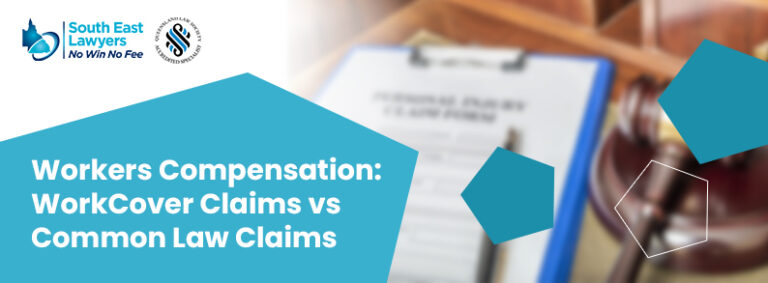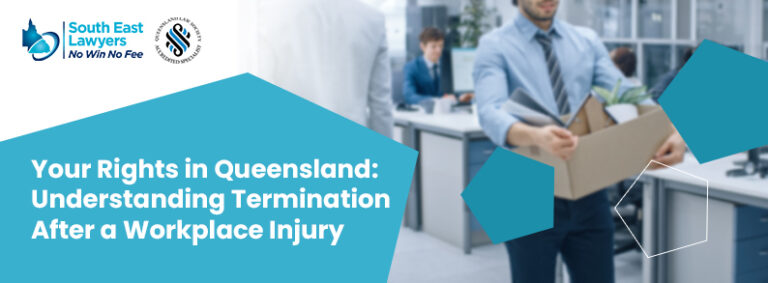Beginning a legal journey, especially for the first time, can be a daunting experience. When it comes to personal injury cases in Australia, understanding your rights and the legal process is crucial in making this journey less overwhelming. This article serves as your guide to preparing for your initial consultation with a personal injury lawyer, providing you with the necessary knowledge and confidence to navigate this important step.
In Australia, personal injury law encompasses a broad range of claims, including workplace accidents, motor vehicle collisions, public liability incidents, and medical negligence. Each case brings its unique set of circumstances and challenges, requiring specialised legal expertise and a compassionate approach.
Your first meeting with a personal injury lawyer is a pivotal moment. It’s an opportunity for you to share your story, understand your legal options, and establish a rapport with a professional who will be instrumental in seeking justice and compensation for your injuries. This introductory phase lays the foundation for your case and helps demystify the legal process that lies ahead.
We want to make sure you feel comfortable and understand what is involved in the personal injury compensation process, so in this article, we will delve into what personal injury law in Australia entails, what to expect during your first meeting, and how to prepare effectively. Our goal is to equip you with the information and resources needed to make this experience as smooth and stress-free as possible. Whether you’re dealing with the aftermath of an accident or seeking recompense for negligence, understanding the path forward is the first step towards achieving a favourable outcome.
The Legal Process in Personal Injury Cases
In Australia, personal injury law is complex and it’s easy to feel overwhelmed, especially if you try to navigate the system by yourself.
To help you feel at ease, below we’ve put together a general overview of the key steps involved in the personal injury claim process:
- Initial Consultation: Your journey begins with the first meeting with your personal injury lawyer. This is a crucial opportunity to discuss the specifics of your case, understand the legal pathways available, and establish a plan of action. During this time, your personal injury lawyer may ask for more information as the aim is to be able to advise you as to whether you are eligible for compensation.
- Case Evaluation and Investigation: After the initial consultation, your lawyer will conduct a thorough investigation of your case. This includes gathering evidence, reviewing medical records, and possibly consulting with experts. The aim is to build a strong foundation for your claim.
- Filing a Claim: Depending on the nature of your injury and the responsible parties, your lawyer will file a claim on your behalf. This could be against an individual, a corporation, or even a government entity. The claim outlines your injuries, the negligence involved, and the compensation sought.
- Negotiation and Settlement: Many personal injury cases in Australia are settled out of court. Your lawyer will negotiate with the other party or their insurance company to reach a fair settlement. This stage requires skilful negotiation to ensure your rights and interests are fully represented.
- Going to Court: If a settlement cannot be reached, your case may proceed to court. Here, both sides will present their arguments, and a judge or jury will make a decision. This stage can be lengthy and requires detailed preparation.
- Resolution and Compensation: The final stage is the resolution of your case, either through a settlement agreement or a court verdict. If successful, you will receive compensation for your injuries, which may cover medical expenses, lost wages, pain and suffering, and other damages.
- Post-Case Follow-Up: Your lawyer will assist you with the final steps, such as the disbursement of funds and advising on how to manage your compensation. They may also offer guidance on any future legal needs or considerations.
It’s important to remember that each personal injury case is unique. Timelines, procedures, and outcomes can vary significantly based on the specifics of your case and your location. Your lawyer will be your guide throughout this process, keeping you informed and involved every step of the way.
By understanding these stages, you are better prepared to navigate the complexities of a personal injury claim and work effectively with your lawyer towards a positive outcome.
Choosing the Right Personal Injury Lawyer
Selecting the right lawyer is a pivotal decision in your personal injury claim. The expertise and approach of your lawyer can significantly influence the outcome of your case. Here’s what you need to consider when choosing a personal injury lawyer in Australia:
- Specialisation and Experience: Look for a lawyer who specialises in personal injury law. They should have substantial experience handling cases similar to yours, whether it’s workplace accidents, motor vehicle collisions, or public liability matters. Experienced lawyers will have a deep understanding of the relevant laws and a track record of successful outcomes.
- Reputation and Reviews: Research the lawyer’s reputation in the field. Look for reviews, testimonials, or case studies on their website. You can also check legal directories or ask for recommendations from friends or family who have had similar legal experiences.
- Communication Skills: Your lawyer should be someone you feel comfortable communicating with. They should be able to explain complex legal concepts in understandable terms and keep you informed about your case’s progress. Regular and clear communication is key to a successful lawyer-client relationship.
- Client-Centric Approach: Choose a lawyer who puts your needs first. They should be attentive to your concerns, responsive to your queries, and empathetic towards your situation. A good lawyer will prioritise your well-being and work tirelessly to achieve the best possible outcome for you.
- Resource Availability: Ensure that the lawyer or law firm has the necessary resources to handle your case effectively. This includes support staff, and the financial capacity to fund your case, especially if it goes to trial.
- Fee Structure: Understand the fee arrangement. Most personal injury lawyers in Australia work on a contingency fee basis, meaning they only get paid if you win your case. Ensure you are clear about how fees and any associated costs are calculated.
- Location and Accessibility: Consider the location of the lawyer’s office. While much of the communication can be done remotely, having a lawyer who is accessible for face-to-face meetings can be advantageous, especially if your case requires frequent collaboration.
- Initial Consultation: Finally, take advantage of the initial consultation, which is often free. This meeting is not just for the lawyer to assess your case, but also for you to evaluate if they are the right fit for you.
Remember, the relationship with your personal injury lawyer is a partnership. Choosing someone who is not only skilled and experienced but also someone you trust and feel comfortable with can make a significant difference in your legal journey.
What to Expect in Your First Meeting with a Personal Injury Lawyer
The first meeting with your personal injury lawyer is a critical step in your legal journey. It sets the stage for your case and allows you to establish a working relationship with your lawyer. Here’s what you can expect during this initial consultation:
Discussion of Your Case
Your lawyer will ask detailed questions about your accident and injuries. Be prepared to discuss how the injury occurred, the extent of your injuries, medical treatments received, and how the injury has impacted your life.
Review of Documents
Bring any relevant documents to the meeting. This may include medical records, police reports, photographs of the accident scene or injuries, correspondence with insurance companies, and any witness statements. These documents will help the lawyer understand the specifics of your case. When arranging your consultation, it’s a good idea to ask what they need you to bring along to your meeting just to make sure you have everything.
Legal Advice
Based on the information provided, your lawyer will offer preliminary legal advice. They will explain the relevant laws that apply to your case, potential legal strategies, and the likelihood of a successful outcome.
Discussion of Legal Fees
The lawyer will explain their fee structure, typically a contingency fee in personal injury cases, meaning they get paid a percentage of the settlement or court award. Ensure you understand the fee agreement, including any additional costs that may be incurred during the case.
Outline of Next Steps
Your lawyer will outline the next steps in the legal process, including any immediate actions that need to be taken, such as filing a claim or gathering additional evidence.
Opportunity for Questions
This is your chance to ask questions. You might inquire about the lawyer’s experience with similar cases, estimated timelines, communication protocols, or any other concerns you have. We have included some common questions a little bit further on in this article.
No Obligation Assessment
Remember, this first meeting is also an opportunity for you to assess the lawyer. You are under no obligation to proceed if you don’t feel comfortable with their approach or expertise.
This initial consultation is an invaluable opportunity to get legal insights, clarify doubts, and establish a comfort level with your lawyer. Approach this meeting prepared and open-minded, and you will set a solid foundation for your personal injury claim.
Key Questions to Ask Your Personal Injury Lawyer
Your first meeting with a personal injury lawyer is not only about providing information but also about gathering it. Asking the right questions can help you understand the legal process and set realistic expectations. We’ve categorised some questions you may wish to ask into categories below:
1. Experience and Specialisation:
- How long have you been practicing personal injury law?
- Do you specialise in a particular type of personal injury case?
- Can you share some outcomes of similar cases you have handled?
2. Case Assessment:
- What is your assessment of my case?
- What are the strengths and weaknesses of my claim?
- What kind of outcome can I realistically expect?
3. Legal Process and Timelines:
- What are the steps involved in pursuing my case?
- How long do you estimate the case will take to resolve?
- How will you keep me informed about the progress of my case?
4. Legal Fees and Costs:
- Do you work on a contingency fee basis, and how is this calculated?
- Are there any upfront costs I should be aware of?
- How are expenses like filing fees or expert witness fees handled?
5. Communication and Involvement:
- How will we communicate throughout the case?
- How often will I receive updates?
- What is expected of me during the legal process?
6. Case Management:
- Who in your firm will be handling my case?
- Will other attorneys or paralegals be involved?
- Can I meet the team working on my case?
7. Potential Outcomes and Strategies:
- What is your approach to negotiating settlements?
- If my case goes to trial, what should I expect?
- How do you prepare for the possibility of trial?
8. Client References and Testimonials:
- Can you provide references from past clients?
- Are there client testimonials I can review?
These questions are designed to provide a comprehensive understanding of your lawyer’s expertise, approach, and how they will handle your case. Their responses will give you insights into their professionalism, communication style, and commitment to your case. Make sure you feel comfortable with their answers before deciding to proceed.
Preparing for the Meeting with Your Personal Injury Lawyer
Being well-prepared for your initial consultation with a personal injury lawyer can make the meeting more productive and ensure that you cover all the essential details of your case. Here’s how you can prepare:
Gather Relevant Documentation
Compile all documents related to your case. This includes:
- Medical records and bills related to your injury.
- Police reports, if applicable.
- Photographs of the accident scene and your injuries.
- Correspondence with insurance companies.
- A list of witnesses, if any, along with their contact information.
- Any notes or a diary you have kept about your injury and its impact on your life.
Write Down a Timeline of Events
Create a clear, chronological account of what happened before, during, and after the accident. Include dates, times, locations, and any other details that you remember.
List Your Questions and Concerns
As we mentioned above, think about what questions you want to ask your lawyer. Also, note any concerns or specific aspects of your case you want to discuss.
Consider Your Goals
Reflect on what you hope to achieve with your claim. Are you seeking compensation for medical expenses, loss of income, pain, and suffering? Understanding your objectives will help your lawyer strategize your case effectively.
Prepare a Summary of Your Injury’s Impact
Take some time out to think about how the injury has affected your life, work, and family. This includes physical limitations, emotional distress, financial strain, and changes in your daily routine.
Organise Your Documents
Keep your documents organised and accessible. This will help you efficiently present your information during the meeting.
Plan Your Logistics
Ensure you know the location of the lawyer’s office, how you’ll get there, and where you can park if you’re driving. Arrive early to give yourself some time to relax and compose your thoughts.
Mental and Emotional Preparation
Meeting with a lawyer can be emotionally taxing, especially when discussing sensitive details of your injury. Prepare yourself mentally for the discussion and remember that your lawyer is there to help you.
Taking some time out to prepare the above will put you in a great position for your first meeting with your injury lawyer.
Stepping Forward with Confidence and the Right Support
As you prepare for your initial consultation with a personal injury lawyer, remember that knowledge and preparation are key to navigating this journey with confidence.
Your first meeting is more than just a formal procedure; it’s the start of a partnership focused on advocating for your rights and seeking the justice you deserve. With a clear understanding of the process and the right legal team, like us here at South East Injury Lawyers, you can confidently take this step, assured that you are well-supported on your journey to resolution and recovery.






